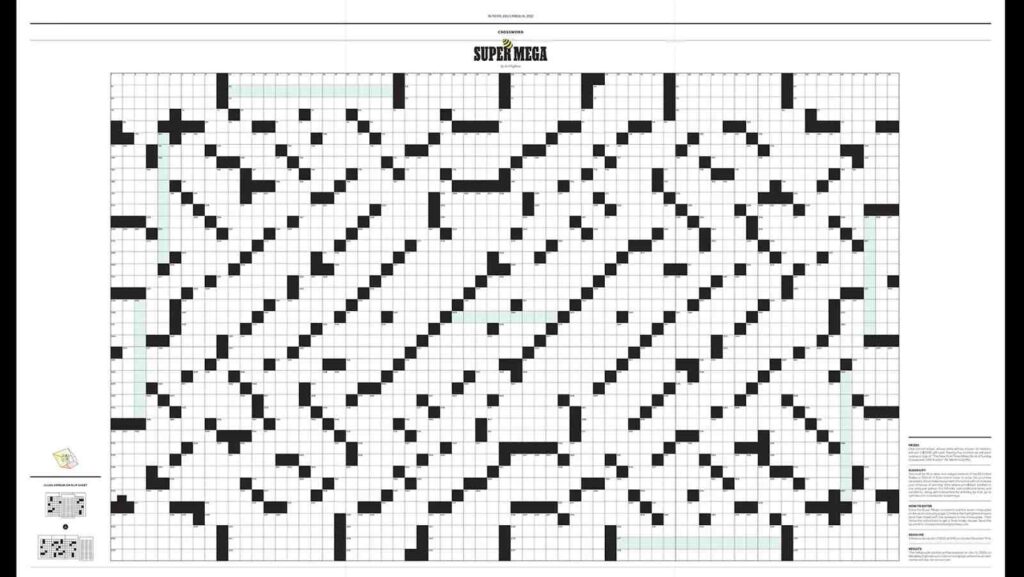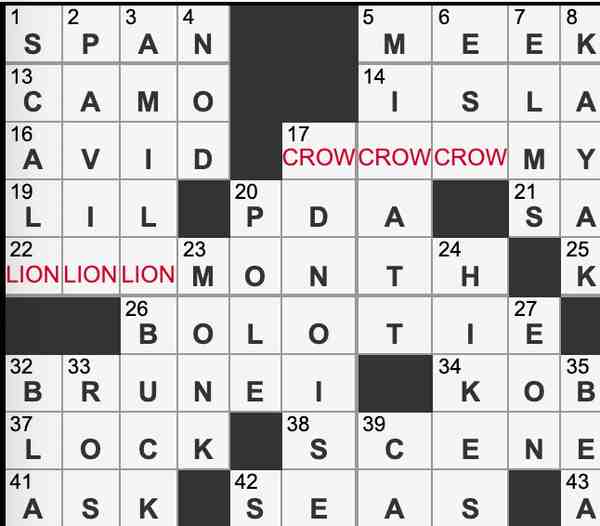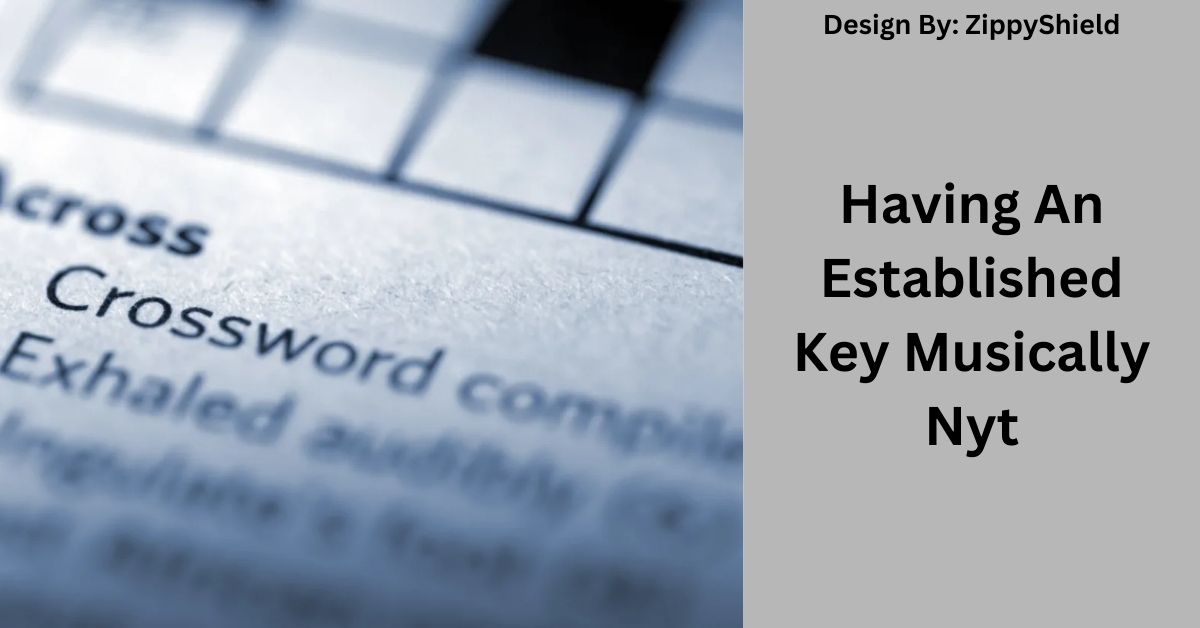For crossword enthusiasts, deciphering clues related to music can be both exciting and challenging. One phrase that often appears in puzzles is “having an established key musically.” While it may seem like a simple clue, it can lead solvers down a path that requires a solid understanding of both music theory and crossword solving techniques.
In this article, we will explore the meaning behind this clue, analyze the different ways it can appear in the New York Times Crossword, and delve into the broader world of music keys and how they relate to crossword puzzle solving.
What Does “Having an Established Key Musically nyt” Mean?
The Basics of Musical Keys
A musical key refers to a specific group of notes that forms the foundation of a composition. It centers around a tonic note, which serves as the “home” base for the rest of the notes in the piece. The established key of a piece defines its tonality—whether it’s major, minor, or something more complex.
For example, a piece in C major will revolve around the notes of the C major scale (C, D, E, F, G, A, B), with the note C serving as the tonic or central pitch. Similarly, a piece in A minor will center around the A minor scale (A, B, C, D, E, F, G), with A as the tonic.
How It Relates to Crosswords?
In crossword puzzles, clues that ask for a term related to “having an established key musically” generally point to words or phrases that involve musical keys or tonality. The answer could range from musical terms to technical words that represent the concept of an established key.
Common answers include words like tonal, tonic, major, minor, key, and scale. Each of these answers relates directly to the concept of having an established key in a musical sense.
Decoding the Clue
When faced with a crossword clue like “having an established key musically,” solvers should look for musical terminology that fits the given letter count and matches the clue’s description. It’s helpful to break down the clue into its components:
- Established key: This suggests that the answer relates to a musical key or something associated with musical structure.
- Musically: This confirms that the answer will be rooted in musical terminology.
Common Crossword Puzzle Clues Related to having an established key musically nyt:

Exploring Other Music-Related Crossword Clues
Music-related clues are prevalent in crosswords, especially in puzzles like the NYT Crossword, known for its blend of pop culture and classical references. Understanding the types of clues related to music will give solvers an edge. Here are some common themes and examples:
Chord Types
- Clue: “Group of notes played together”
- Answer: Chord
Key Signatures
- Clue: “Tonality indicator”
- Answer: Key or Scale
Composers
- Clue: “Composer of ‘Fur Elise'”
- Answer: Beethoven
Music Genres
- Clue: “Type of classical music with no lyrics”
- Answer: Symphony
Interpreting Clues Through Context
Context is crucial in crosswords, especially for clues like “having an established key musically.” For instance, if the puzzle leans heavily on classical music themes, you might lean toward an answer like tonic or key. Conversely, if the puzzle includes contemporary music references, you might consider answers like major or minor.
It’s also important to consider the length of the answer. If the clue calls for a four-letter answer, the solution is likely to be a simple term like key or tone. Longer answers might involve more complex musical concepts, such as tonality or dissonance.
The Importance of having an established key musically nyt Keys in Composition and Performance:
Defining Musical Keys
Musical keys are the building blocks of music theory. An established key gives a piece of music its tonality, determining the specific scale that will be used throughout the composition. Keys provide a framework for both melody and harmony, guiding the composer’s decisions and the performer’s interpretation.
Read: Matpatify – A Comprehensive Guide!
In a major key, the music often sounds bright and happy, while in a minor key, the mood is generally darker or more melancholic. Understanding these distinctions is essential when solving clues related to musical keys, as the tonal quality of a piece can inform the answer.
How Keys Affect Harmony?
Harmony in music depends heavily on the key. Composers use the notes of the established key to build chords and progressions that support the melody. In tonal music, certain chords are more stable, while others create tension and drive the music forward. This balance of tension and release is what gives music its emotional depth.
Why Should Crossword Solvers Care About having an established key musically nyt Keys?

For crossword solvers, knowledge of musical keys and harmony is valuable because it opens the door to solving a wide range of music-related clues. Crosswords frequently reference music theory concepts, and being familiar with these terms will make the puzzle-solving process smoother.
Mastering Music-Themed Crosswords: Tips and Strategies
Familiarize Yourself with Music Theory
Understanding basic music theory will significantly enhance your ability to solve crossword puzzles with music-related clues. Key terms like tonal, scale, major, and minor appear frequently, so having a strong grasp of their meanings is helpful.
Learn Common Music Clues
Certain clues and answers appear repeatedly in crosswords. Memorizing these patterns can save you time when solving puzzles. For example:
- “Musical key” often leads to answers like A major or C minor.
- “Tonality indicator” might result in answers like key signature or scale.
Pay Attention to Letter Count
Always take note of the letter count provided in the puzzle. This will help you narrow down your options and eliminate incorrect possibilities. A five-letter clue for “having an established key musically” might point to tonal, while a shorter clue could lead to key or tonic.
FAQ’s:
1. What does “having an established key musically” mean in crossword puzzles?
It typically refers to a term related to music theory, such as tonal, tonic, key, or scale.
2. Why are musical keys important in composition?
Musical keys provide the foundation for harmony and melody, shaping the tonality and emotional direction of a piece.
3. What are the most common answers for music-related crossword clues?
Some common answers include key, tonic, major, minor, chord, and scale.
4. How do major and minor keys differ?
Major keys are often associated with happiness and brightness, while minor keys convey sadness or darker emotions.
5. What is modulation in music?
Modulation refers to the process of changing from one key to another within a piece of music, often used to create contrast or tension.
6. Why do crossword puzzles often include music-related clues?
Music is a universal theme with a rich vocabulary, making it a favorite topic for crossword constructors to challenge solvers.
7. What are some common music theory terms that appear in crosswords?
Terms like tonal, scale, chord, key, and melody frequently appear in music-related crossword clues.
Conclusion:
Solving having an established key musically nyt crossword puzzles requires a combination of knowledge, strategy, and creativity, especially when it comes to clues like “having an established key musically.” Understanding musical keys and related terminology will not only help you tackle these clues but also enhance your overall puzzle-solving experience.
Read More:



